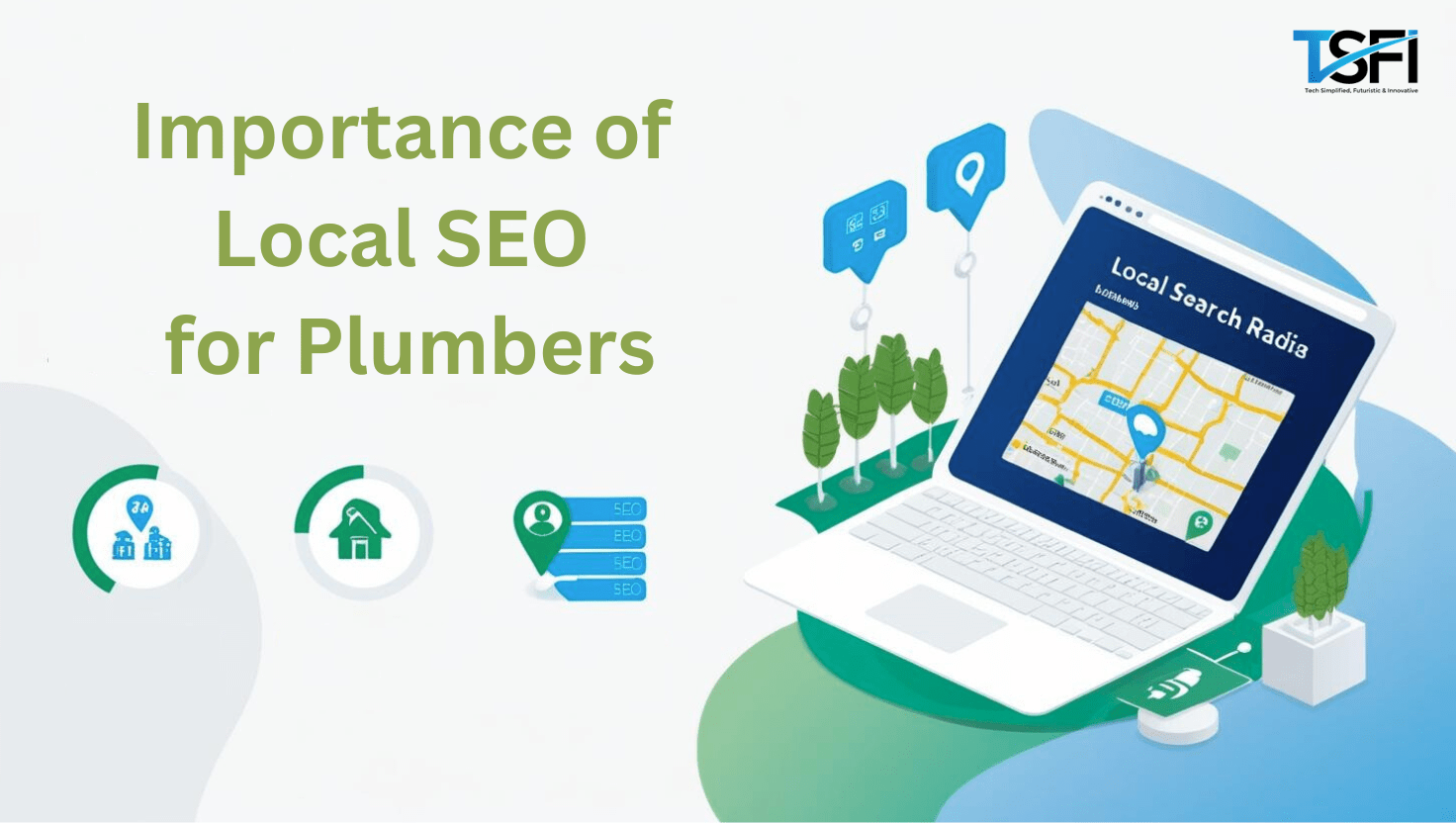
The Cost of SEO Services for Plumbers: Is It Worth It?
Did you know 97% of consumers search online for local services—and plumbing is no exception? If your website isn’t showing up when someone Googles “emergency plumber near me,” you’re missing out on jobs (and cash). But here’s the catch: SEO isn’t free. Hiring a plumber SEO company can cost anywhere from 500to5,000+ per month. So, is it worth the investment?
In this guide, we’ll unpack the real costs of SEO for plumbers, how it works, and whether it delivers a tangible return. Spoiler: For most plumbing businesses, the answer is a resounding yes—but only if done right. Let’s unclog the details.
What Exactly Is Plumber SEO?
SEO (Search Engine Optimization) is the art of making your website more visible on search engines like Google. For plumbers, this means optimizing your site so it ranks higher for terms like “water heater repair in [Your City]” or “24/7 plumber near me.” A plumber SEO company typically handles:
- Keyword research (finding what locals are searching for).
- On-page SEO (tweaking your website’s content and structure).
- Local SEO (claiming your Google My Business profile, managing reviews).
- Content creation (blog posts like “How to Fix a Leaky Faucet”).
- Backlink building (getting other sites to link to yours).
Think of SEO as a marathon, not a sprint. It takes 3–12 months to see results, but the payoff—consistent, free traffic—can last for years.
How Much Does SEO for Plumbers Cost?
Prices vary wildly based on your goals and competition. Here’s a rough breakdown:
| Service Tier | Monthly Cost | What’s Included |
|---|---|---|
| Basic Local SEO | 500–1,500 | Google My Business setup, basic keyword optimization. |
| Mid-Range SEO | 1,500–3,000 | Content creation, technical SEO, local backlinks. |
| Enterprise SEO | 3,000–5,000+ | Full-service campaigns, national/competitive markets. |
What Impacts the Cost?
- Competition: Ranking in New York City costs more than rural Iowa.
- Scope: More pages/blog posts = higher fees.
- Agency Experience: Established firms charge premium rates.
The Pros and Cons of Investing in Plumber SEO
👍 Pros
- Long-Term Traffic: Unlike paid ads, SEO drives free, ongoing leads.
- Hyper-Local Targeting: Reach customers in your service area.
- Credibility Boost: Top Google rankings = trust.
- High ROI: One extra job per month often covers the cost.
👎 Cons
- Upfront Costs: SEO requires patience and budget.
- No Guarantees: Algorithms change (though reputable agencies adapt).
- DIY Complexity: Doing it yourself eats into your time.
Real-Life Example: How SEO Transformed a Plumbing Business
Take Joe’s Plumbing in Austin, Texas. In 2022, Joe spent 92,000 in new jobs** directly from SEO—nearly 4x his investment.
“I almost quit after 3 months,” Joe admits. “But once the rankings kicked in, my phone wouldn’t stop ringing.”
SEO vs. Alternatives: Where Should Plumbers Spend?
Pay-Per-Click (PPC) Ads
- Pros: Immediate results.
- Cons: Costs add up fast (20–50 per click for competitive terms). Stop paying, and traffic vanishes.
Traditional Ads (Mailers, Billboards)
- Pros: Builds local awareness.
- Cons: Hard to track ROI; younger audiences ignore them.
The Verdict: Combine SEO with PPC for short-term wins while building long-term traffic.
Local SEO vs. National SEO: Which Is Best for Plumbing Contractors?
How to Choose the Right Plumber SEO Company
Picking the right SEO partner is like hiring a trusted apprentice: You want someone who understands your tools, speaks your language, and gets how plumbing businesses operate. But with so many agencies promising “#1 rankings,” how do you separate the pros from the pipe dream? Let’s break it down step by step.
1. Look for Plumbing Industry Experience (Not Just “Local SEO”)
A generalist SEO agency might know local SEO basics, but a plumber SEO company should understand:
- Your audience’s pain points (e.g., emergency leaks, clogged drains).
- Service-specific keywords (e.g., “tankless water heater installation” vs. “sewer line repair”).
- Competitor landscape (Are you up against franchise giants or local independents?).
Ask them:
- “Can you share examples of plumbing clients you’ve worked with?”
- “How do you approach keyword research for trade businesses?”
👉 Pro Tip: If they mention optimizing for “plumbing supplies” or “wholesale pipes,” they’re targeting the wrong audience.
2. Demand Transparency in Their Process
Avoid agencies that treat SEO like a “black box.” A reputable partner will explain:
- Initial audit findings (What’s wrong with your site?).
- Custom strategy (Will they focus on Google My Business, blog content, or backlinks?).
- Monthly reporting (What metrics will they track? Rankings? Organic traffic? Lead conversions?).
Red Flag Alert: If they refuse to share their plan or use vague terms like “proprietary methods,” walk away.
3. Check Reviews (And Talk to Past Clients)
Don’t just skim testimonials on their website. Dig deeper:
- Google Reviews: Search “[Agency Name] + reviews.”
- Case Studies: Do they show measurable results (e.g., “Increased organic traffic by 200% in 6 months”)?
- Client References: Ask to speak directly to a plumbing client.
Questions for References:
- “Did they deliver on their promises?”
- “How responsive were they to questions?”
4. Avoid “Guaranteed Rankings” (It’s a Scam)
Google’s algorithm changes daily—no ethical agency can guarantee #1 spots. If they do, they’re likely using spammy tactics (like buying backlinks) that could get your site penalized.
Instead, look for:
- Realistic timelines (“We expect to see movement in 4–6 months”).
- Focus on sustainable growth (e.g., quality content, legitimate backlinks).
5. Evaluate Their Local SEO Expertise
For plumbers, local SEO is non-negotiable. Ensure they’re fluent in:
- Google Business Profile optimization (including posts, Q&A, and photo updates).
- Local citations (consistent NAP: Name, Address, Phone number across directories).
- Review management (encouraging happy customers to leave feedback).
Test Their Knowledge:
“How would you improve my Google Map Pack rankings for ‘plumber near me’?”
A solid answer might include optimizing service area pages, building local backlinks, and improving GBP categories.
6. Compare Pricing (But Don’t Cheapen Out)
SEO isn’t a commodity—you get what you pay for. While $300/month might sound tempting, it likely covers minimal work.
Budget Guidelines:
- 500–1,500/month: Suitable for small businesses with moderate competition.
- 1,500–3,000/month: Ideal for competitive markets or multi-location operations.
Ask About Contracts:
Avoid agencies locking you into year-long commitments. Month-to-month or 3-month trial periods are safer.
How a Plumber SEO Agency Can Transform Your Business
7. Gauge Their Communication Style
You’re a plumber, not an SEO expert—your agency should explain things plainly.
Warning Signs:
- Overusing jargon like “TF-IDF” or “canonical tags” without explaining.
- Ghosting you after the contract starts.
Green Flags:
- Regular check-ins (weekly or bi-weekly updates).
- A dedicated account manager (not a rotating team).
8. Request a Sample SEO Audit
Many agencies offer free audits to showcase their skills. Use this to assess:
- Depth of analysis: Do they mention technical issues (e.g., slow site speed, broken links)?
- Actionable recommendations: Are they suggesting concrete steps (e.g., “Create a service page for ‘bathroom remodeling’”) or vague “optimize content” advice?
9. Ask About Their Link-Building Strategy
Backlinks from reputable sites (like local news outlets or industry blogs) are SEO gold. But avoid agencies that:
- Buy links: This violates Google’s guidelines.
- Use spammy directories: Focus on quality over quantity.
Ethical Tactics They Should Mention:
- Guest blogging for plumbing/DIY websites.
- Earning mentions in local “best plumber” roundups.
10. Trust Your Gut
SEO is a long-term partnership. If something feels off—like pushy sales tactics or cookie-cutter proposals—keep looking.
Final Checklist for Hiring a Plumber SEO Company
Before signing, confirm they:
✅ Have plumbing industry case studies.
✅ Offer transparent pricing and reporting.
✅ Avoid spammy shortcuts.
✅ Communicate clearly and consistently.
✅ Focus on your business goals (not just rankings).
By taking the time to choose wisely, you’ll partner with an SEO team that doesn’t just boost your rankings—they help you build a pipeline of loyal customers. After all, you wouldn’t trust just anyone to fix a burst pipe. Why trust your online reputation to amateurs?
Top Local SEO Strategies to Get More Plumbing Leads in 2025
FAQs About Plumber SEO Services
1. How long does SEO take to work for plumbers?
Most see initial results in 3–6 months, but peak traffic often takes 9–12 months.
2. Can I do SEO myself?
Yes, but it’s time-consuming. Tools like Semrush or Moz help, but expect a steep learning curve.
3. What’s the #1 SEO tactic for plumbers?
Optimizing your Google My Business profile—it’s free and critical for local visibility.
4. Is SEO worth it for a one-person plumbing operation?
Absolutely! Even solo plumbers need to outrank competitors online.
Conclusion: Is Plumber SEO Worth the Cost?
If you’re serious about growing your plumbing business, SEO isn’t just worth it—it’s essential. While the upfront investment might feel steep, the long-term benefits (steady leads, brand authority, and outshining competitors) far outweigh the costs. Just remember: Partner with a plumber SEO company that’s transparent, experienced, and focused on your local market.
Ready to get started? Share your SEO questions below, or check out our guide on How to Choose the Right Marketing Strategy for Your Plumbing Business



